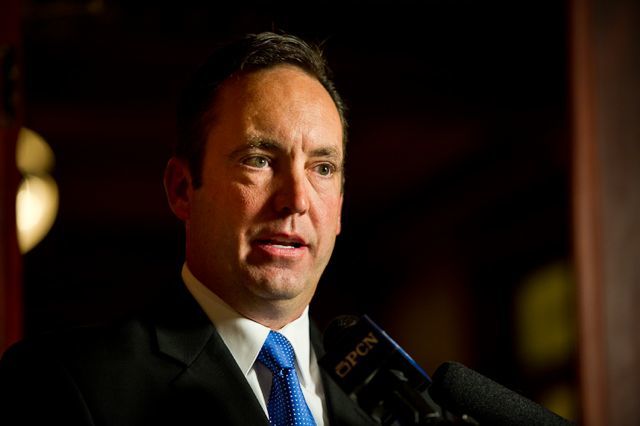State Judge Rules Against NCAA’s Plea for Privilege

By Michael Martin Garrett
It’s apparently going to be harder for the National Collegiate Athletic Association to keep certain conversations out of the public eye.
During recent deposition hearings, NCAA officials have refused to reveal some details about internal discussions — citing attorney-client privilege.
But a judge’s ruling essentially says that’s not good enough.
In a court filing on Tuesday, Commonwealth Court Judge Anne Covey ruled against the NCAA, saying that only conversations that specifically seek legal advice from an attorney are subject to privilege.
Covey said that unless the NCAA is able to prove a conversation was a specific request for legal counsel, it cannot claim attorney-client privilege on conversations involving Remy.
“Given the ‘liberal discovery rule,’ we refuse to attempt to craft restrictions on Plaintiffs’ deposition questions,” Covey writes.
After deposition hearings with NCAA Vice President for Academic and Membership Affairs Kevin Lennon and NCAA Vice President of Communications Bob Williams earlier this month, Corman told the court the parties had reached “an impasse” and asked the court to intervene.
Corman argued in a November 7 motion that the NCAA “objected to almost every single question” asked at the deposition hearings. The NCAA objected to questions that might have revealed the details of conversations that involved Donald Remy, the NCAA’s chief legal officer. Corman argued that Remy’s involvement in a conversation was not grounds for invoking attorney-client privilege.
In response to Corman’s November 7 request, the NCAA argued that overly vague questions from Corman’s attorneys were the source of the problem. The NCAA asked the court to keep Corman from asking questions about privileged information.
Corman asked the court to prevent these objections at future hearings, which Covey granted on Tuesday.
The NCAA also faces growing opposition in federal court. Christopher Craig – chief legal officer for the Pennsylvania Treasury – filed a brief on Tuesday asking the court to rule against the NCAA. He argues that the Endowment Act should satisfy conditions set by the NCAA for the distribution of the $60 million. Craig includes a number of internal NCAA emails as evidence.
“… we need to frame the $60M as a part of PSU’s sanctions imposed by the NCAA and they are not administering this fund or establishing the endowment,” Bob Williams wrote on August 1, 2012. “An independent agency will administer the fund and the money does not go from Penn State to any of the charities directly. PSU will deposit the funds into an account administered by the third party agency.”
The Endowment Act makes the Pennsylvania Treasury the third party agency requested by the NCAA. Craig further reminds the federal court that the commonwealth court has repeatedly upheld the constitutionality of the Endowment Act.
Your ad blocker is on.
Please choose an option below.
Purchase a Subscription!




